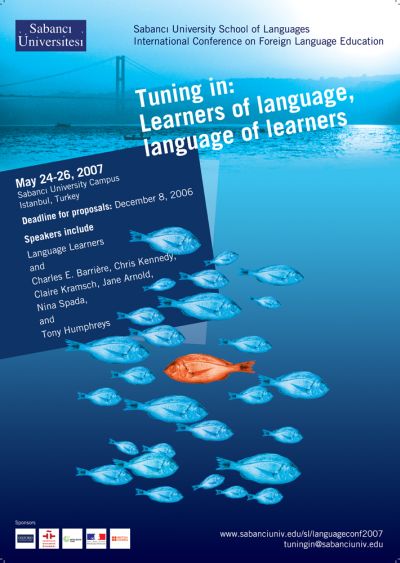
The International Conference on Foreign Language Education, Tuning in: Learners of language, language of learners hosted by the School of Languages was held between May 24-26, 2007 with over 300 participants from over 20 countries. Language teaching professionals and language learners discussed their work, research and experiences on the following challenging questions:
Do we speak the same ‘language’ as our learners? How can we tune in more effectively to what learners have to say, what they believe they need and want, what processes they really learn by, what they believe we need to learn? What do we research? Do learners have a say? What do we do to find out about learners’ voices? What do we actually find out about? What meaning do we read into what we learn? What do we do with what we then know?
Feedback on the conference has highly been positive and can be accessed from here. Looking forward to being with you again at other exciting events.
On behalf of the Conference Committee
Deniz Kurtoglu Eken
Director, Sabancı University School of Languages (2007- )
PLENARY SESSIONS
The conference was very well attended with a good balance of national and international speakers. Plenary presentations were given by Claire Kramsch, Charles E. Barrière, Chris Kennedy, Jane Arnold, Nina Spada, and Tony Humphreys as well as student plenary speakers Semih Seloni, Adrian Aycan Corum, Sevgi Ozpehlivan and Emre Karacan (opening speech).

If you missed the conference, you can now listen to all the plenary sessions:
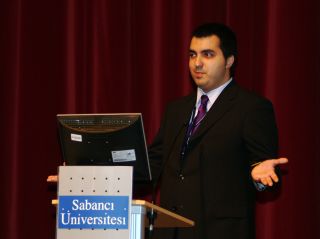
Opening Speech: Foreign Languages: A threat or door to empathy? Emre Karacan, a Junior student, Sabanci University, Turkey Listen
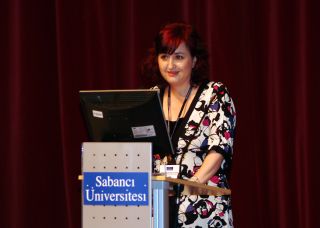
Welcoming Remarks: Deniz Kurtoglu Eken, Director, Sabancı University School of Languages, Turkey Listen
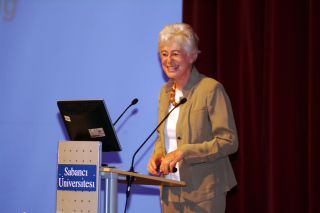
Voice and desire in language learning: Claire Kramsch, German Department, University of California Berkeley, USA
Learning another language is not like learning math or geography. It is an eminently embodied kind of learning, which engages a learner’s mind, emotions, memories and imaginings, identifications, and their deepest fears and aspirations. Teachers don’t usually have time to attend to these subjective aspects of their learning; nor do they necessarily feel it is appropriate to share with the class their own subjective relation to the language they teach. Moreover, while an increasing number of students come to class with unique bilingual or multilingual experiences, textbooks still teach the L2 on the backdrop of one single L1. This paper will discuss a survey I conducted a few years ago of the language learning metaphors used by college students of 14 different languages in response to the cue “Language learning is like.”, and a collection of essays written by 18 year-old freshmen in response to the question: “What does it mean to know several languages?”. Implications of these students’ voices will be explored for the teaching of foreign languages in classroom settings. Listen
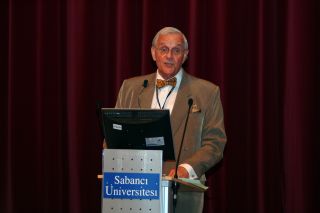
Some strategies to promote multiculturalism and multilingualism in Europe and the USA: Charles E. Barrière, ELITE, France
The European Union has, ever since the founder members decided to get together, always been concerned about the preservation and the promotion of multiculturalism and, as a direct consequence, of multilingualism within an ever-growing number of member states. In order to achieve this, the European authorities had to set up various schemes which, among other initiatives, took the form of educational and linguistic programmes (Erasmus, Lingua, Comenius, and more recently, two more global programmes, Socrates and Leonardo, which, between them, incorporate all the measures which had been taken previously). The aim being to turn European citizens, and particularly the younger ones, into individuals who must be open to “other ways of doing and saying things”, these programmes had to develop the best means to “get the message through”.
On the other side of the Atlantic, in the United States of America, an ever-increasing number of educational authorities have also become more and more aware of the necessity of understanding other peoples’ languages and cultures if their country is to maintain a prominent position in the process of globalization. They have therefore set up strategies to reach this goal, sometimes in coordination with other countries.
The session will concentrate on some of the more typical experiments that have been carried out, with a special focus on the needs of the learners (whether they be younger or older students) for whom the programmes are designed and on how the initiators of these programmes are constantly endeavouring to take these needs into account in order to develop more meaningful and more effective operations. Listen
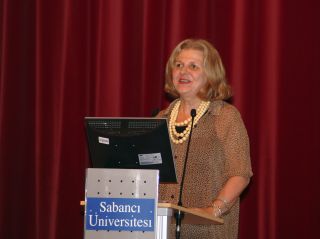
Learners’ preferences for and opinions about ‘integrated and isolated form-focused instruction: Nina Spada, Ontario Institute for Studies in Education, University of Toronto, Canada
Classroom research and teaching experience have led to a growing consensus that instruction is most effective when it includes attention to both form and meaning. Advocates of content-based instruction now emphasize the importance of both content and language objectives. The focus of this presentation is on how and when it might be most effective to draw learners’ attention to language form. Specifically, I will address the question of whether it is better to draw learners’ attention to language form in lessons that are isolated from communicative or content-based interaction or in activities where form focus is integrated within communicative practice. I will review theoretical and pedagogical support for both isolated and integrated form-focused teaching. I will then report on empirical data from a research project investigating this issue. Questionnaire data exploring learner preferences for integrated and isolated instruction were collected from approximately 300 adult learners in two programs, a university based EAP program and a community-based ESL program. In addition, 8 of the teachers (4 from each program) were asked to teach two versions of an instructional unit on the passive construction: one in an integrated format and the other in an isolated format, to one group of students in their program. Order of presentation was counterbalanced. Prior to the lesson, learners (and their teachers) completed an initial questionnaire exploring preferences for integrated and isolated form-focussed teaching. Immediately after the two lessons had been taught, the learners (and teachers) completed a second questionnaire seeking their opinions about the two instructional approaches. Learners’ responses are compared and discussed in relation to differences in the programs, learner proficiency levels, teachers’ views and other learner and instructional factors. Listen / Powerpoint .
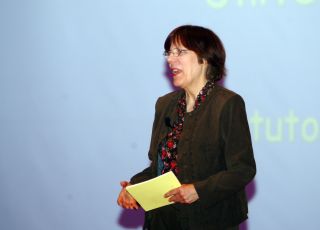
Learners and Learning: The Importance of Affect: Jane Arnold, University of Seville, Spain
The affective domain and the emotional factors which influence language learning have been of interest in the field of language teaching for a number of years. Language learning experience will be much more effective when both affect and cognition are considered. Listen / Powerpoint .
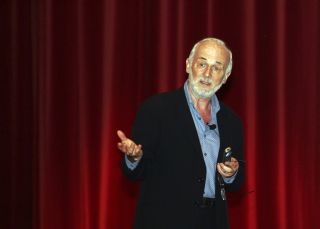
Achievement as Metaphor: Tony Humphreys, Consultant Clinical Psychologist, Author, Lecturer, University College Cork and University College Limerick, Ireland
There is a strong association between achievement and belonging. Everyone wants to belong, to a family, a partner, a classroom, a workplace. The quality of the belonging has a direct bearing on a person’s educational progress. Indeed, educational under-achievement may often be a metaphor for emotional under-belonging! Furthermore, many other educational difficulties may be symbolic of emotional ones. It is a case of the heart ruling the head and not the head ruling the heart! In any case, effective teaching and effective learning are both a heart and a head phenomenon. Listen .
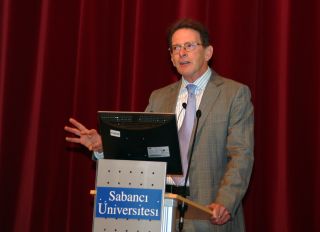
Are we all on the same wavelength? Tuning in to teachers’ and learners’ needs in curriculum reform: Chris Kennedy, Center for English Language Studies, University of Birmingham U.K.
Much large-scale reform in education is inevitably a top-down process from Ministry level policy formation to implementation in the classroom. We have now considerable evidence that this process causes problems for both teachers and learners, since there is too much ‘distance’ between policy and its implementation. So teachers find that they are having to teach new materials or use new methodologies unsure perhaps of their abilities or the feasibility of putting the reforms into practice. This insecurity may be shared by learners who may resist the changes or remain indifferent to them. This talk will firstly explore whether curriculum planning can be brought closer to the realities of the classroom; and secondly, using examples from different parts of the educational world, whether there are ways in which teachers and learners can achieve success together despite the difficulties presented to them by curriculum reform. Listen / Powerpoint .
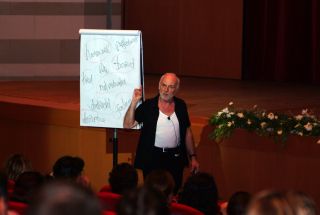
Individuality in Learning: Tony Humphreys, Consultant Clinical Psychologist, Author, Lecturer, University College Cork and University College Limerick, Ireland
Individuality is the cornerstone of effective relationships, of teaching and learning in the classroom. The degree to which a teacher knows self will have a direct bearing on how he relates to students and how he teaches. Equally, the quality of each student’s relationship with self will influence his/her relationships with the teacher, peers and his/her motivation to learn. The reality is that in each classroom each student has a different teacher and it is the mature teacher that recognises that fact. Teachers that treat all the students in the same way pile up problems for themselves. Teachers who acknowledge individuality and difference create an exciting, creative and positive classroom ethos that comes out to meet you. Listen .
Student plenary speakers
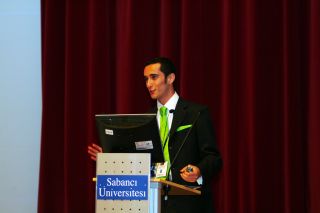
Oh my God; Io sono troppo much confuso. (Oh my God! I’m so much confused.): Semih Seloni, Sabanci University, Turkey
Having gone through the process of learning English, Italian and Spanish as a foreign language, I will try to find answers to the following questions: Is learner awareness raised on why to learn a foreign language? Do students know the aims of all classroom games? Are they aware of their learning strategies? In this session we will discuss several techniques that are employed by students and teachers. Listen / Powerpoint.
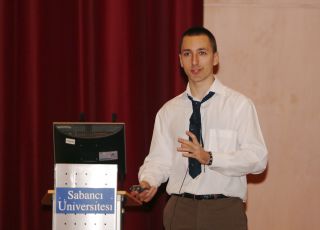
From identity of language to language of identity: Adrian Aycan Corum, Sabanci University, Turkey
How much one masters a language is related to the ability to think intensively in that language. After mastering a second language, it becomes clear that each language contains its own way of thinking, identity. Each language can function in expressing different aspects of character and emotions, thus forming our identity. This awareness can help us to use learned languages as connective tools for the learning of further languages. Listen / Powerpoint .
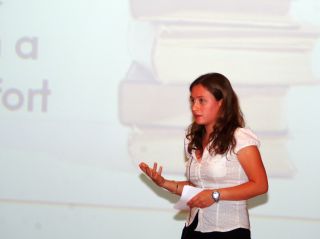
Hate it or love it: How can instructors lead a learner to success or failure: Sevgi Ozpehlivan, Sabanci University, Turkey
The relationship between instructor and learner is the ultimate determinant in successful language learning as it is the instructor who can lead a learner to success or failure. Thus there are actually no “difficult” languages but “difficult” processes of learning. One of the key aspects in this process is for the instructor to help the learner build up “confidence”, linguistic confidence. As languages are unique just like the cultures they represent, so should the bilateral relations between learner and instructor be. Not only the language but also the culture itself should be introduced by the instructor using methods that consider both the capability and the character of the learner. Listen / Powerpoint .
CONCURRENT SESSIONS - ABSTRACTS - PROCEEDINGS
The proceedings are in the order they were presented at the conference.
English as a Linguistic and Intellectual Weapon against Nativespeakerism (Angeles Clemente & Michael Higgins)
Big Challenges for a Small Language (LidijaCvicik & Sanda Ludija Udier)
Assessing teaching assessment (Jadranka Lasic-Lazic, Mihaela Banek Zorica & Kresimir Pavlina)
Content and Language Integrated Learning Potential and Practice (Steve Darn)
Self-serving biases of students and teachers (Hande Ozturk)
Observing Students' Co-construction of Meaning: Operationalizing Vygotsky (Lynne T. Díaz-Rico) [Appendix B]
The Language of Our Teaching: Do The Students Really Relate? (Dilek Inal) [Questionnaire]
Future Teachers Defining Good Teachers (Nesrin Oruc)
How to Live in Harmony in the Language Classroom (Deniz Renda Korum)
Please say anything but yes or no: Fruitful Peer Feedback in Writing (Elif Demirel & Husnu Enginarlar)
Leave learners alone (Boryana Kostova & Galina Shamonina)
A Program Evaluation Journey: Does continuous change reflect student needs? (Duygu Ozge & Aysegul Daloglu)
From English to Undergraduate, the international student experience ( Joanne Smailes & Pat Gannon-Leary)
SSSS: Speakin Sudents Scared Stiff (Bahar Gun & Funda Cetin)
What can be learned from student-centeredness in curriculum and assessment? Implications for teachers (Yildiz Turgut)
From identity of language to language of identity (Adrian Aycan Corum)
On-Line Learning In Line with Student Feedback (Seda Ertum & Judy Wren)
'Culture' in English language classrooms: What do students think? (Devrim Yilmaz)
Computer-Assisted Turkish Learning By Using Internet Technologies (Osman Solmaz)
Raising learners' and teachers' awareness of vocabulary strategy learning (Nafiye Cigdem & Selvin Guven)
Estimating and Enhancing Learners Knowledge of Academic Vocabulary (Ronald Boyle & Tim Kirk)
Situational influences on EFL and ESL learners' beliefs and strategy use (Jirapa Abhacorn)
Extending writing instruction beyond school walls (Aysel Kizil & Recep Arslan)
Learning from Failure: Student Involvement in Curriculum Renewal ( Sibel Tuzel Kandiller & Gulden Tayanc)
Learning About Teaching Foreign Languages Through Reflective Processes (Tugui Camelia-Marinela)
Academic writing: From student learning to teacher learning (Emilija Georgievska, Anastazija Kirkova-Naskova & Elena Oncevska)
Voicing the unvoiced: Student stress (Sevdeger Cecen & Hande Ozturk)
